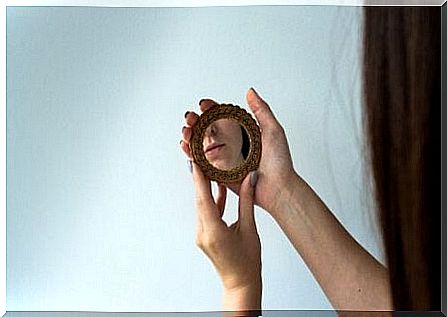How Is Your Relationship With Your Body?

Your relationship with your body is not as obvious as you think. It is often pushed to the background, despite its weight. Often the relationship to your body is either instrumental or functional. It is instrumental when you consider the body to be a way of influencing others. In that case, you take care of it so that you can be happy with it or decorate it to attract others.
On the other hand, it is also possible for the opposite to happen. You can hide your body from others, and you can even neglect it if you do not have a good self-image.
Your relationship with your body can also be functional. This means that you are only aware of it when you feel pain or get sick. When you are healthy, you forget that everything you do, feel and think is something that takes place biologically within it.

Apathy and obsession with the body
Some people have a distant relationship with their body. They do not explore it and do not know much about it. It is also possible that they feel a certain contempt or fear towards it. For those who have this difficult bond, it is often characterized by two extremes. First we have those who are overly shy and attentive to their organism. Furthermore, we have those who are basically indifferent to their body.
Those who become obsessed with their bodies are generally very scared. They are especially insistent when it comes to cleanliness and fear of bacilli. In the same way, they do not tolerate natural odors, such as sweat, urine and feces. In fact, they do not see them as natural odors, but as warning signs.
At the other end of the spectrum, there are people who deviate from the norm. A sign of mental problems is extreme carelessness when it comes to body hygiene and the body in general. They prefer not to bathe or change clothes; they prefer to stink and usually do not worry about it. If your relationship with your body falls into one of these categories, you need help.
Emotions and your relationship to your body
Emotions are not positive or negative, but some of them can aggravate disorders in the body. By disturbances we mean the activation of processes that change the normal balance in the body. These feelings are anger, sadness and anguish. Of course, there are also those that are a combination or derivative of these: frustration, stress, intolerance, etc. All of these emotions are a response to stimuli that the body perceives as threatening.
Your emotions influence your relationship with your body. Many studies say that it is obvious that emotions help to restore organic balance in some cases. In other cases, they can lead to disease. Research has verified that anxiety leads to various diseases, especially infectious diseases or autoimmune diseases.

Researchers have also proven that anxiety negatively affects surgical procedures. What we call “stress” in turn tends to change the body’s normal recovery process. Hormone release during stressful periods can increase the risk of developing certain types of diseases, such as cardiovascular disease. Furthermore, they also weaken the immune system.
Many people do not notice the effects their emotions have on the body. For example, they do not notice that their heart rate increases or that their breathing changes when they experience certain emotions. They are also not aware of changes in temperature, unexpected tension in muscles or the acceleration of certain processes.
Your relationship with your body depends on how sensitive and aware you are about the changes that take place in the body.









